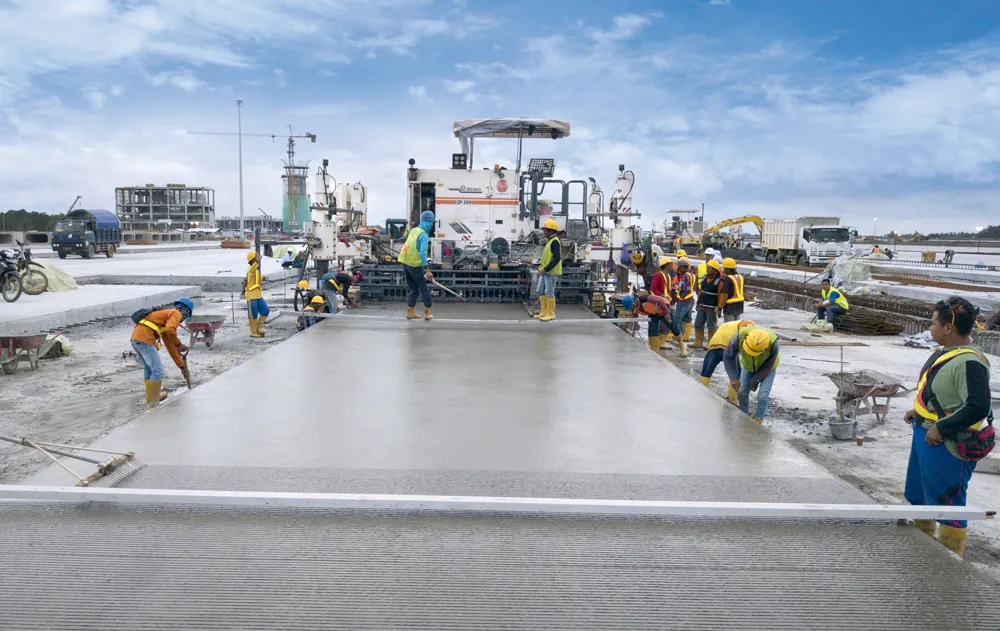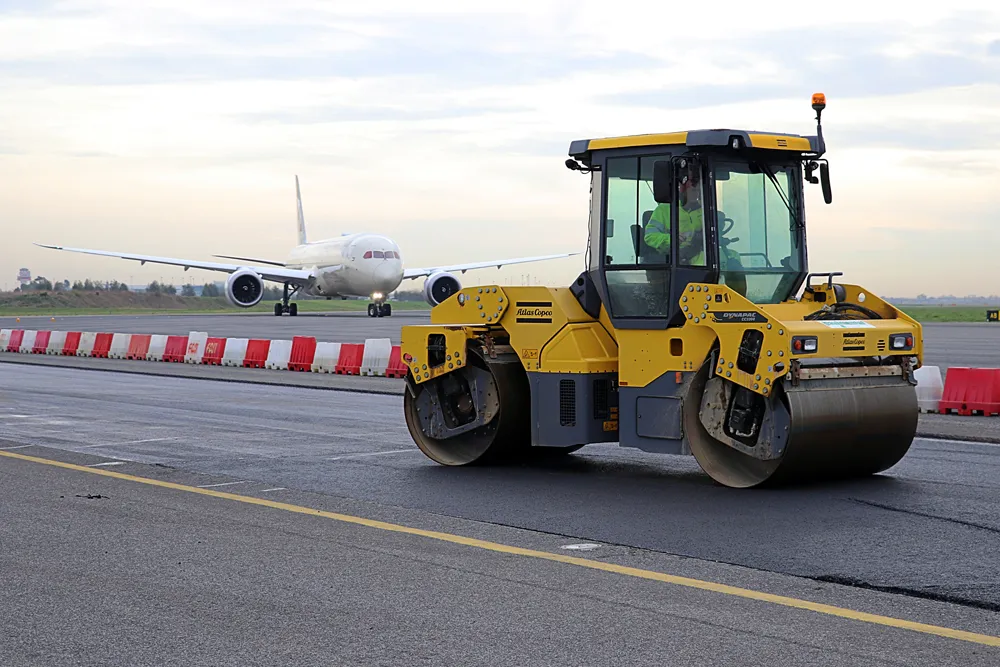
Construction of the facility has been carried out to a tight schedule, providing a challenge for this large-scale project in Yogyakarta. The contractors carrying out the project needed to employ the latest generation equipment to ensure that the concrete slabs would be completed on time.
The slipform pavers were provided through the Wirtgen Group sales and service company in Singapore, working in collaboration with the Indonesian Wirtgen Group dealer PT Gaya Makmur Tractors. The supply deal included the fleet of machines required as well as technical support and onsite application consulting.
A team of four SP 64 machines, six SP 500 machines, and one SP 84i machine formed the final line-up for the high-precision cost-effective paving of the 3.25km-long, by 45m-wide runway. The slipforming equipment was also used to pave the airport’s taxiways and apron.
The 500mm-thick concrete layer was paved across a width of 2m, 5m, or 6m, depending on the area involved. During the process, dowels, which were prepositioned on reinforcement cages spaced at transverse intervals of 300mm, and a wire grid were integrated in the concrete as additional reinforcements.
The construction firm carrying out the airport building work, PT PP Presisi Tbk Group of PT PP (Persero) Tbk, was pleased with the quality of the paving job. The machines also excelled across the board in terms of their performance, as well as the reliability of the equipment.
The airport is already in use and the first plane to land at the new Yogyakarta International Airport (YIA) on the Indonesian island of Java was an A320 from Jakarta. However, the slipformers still have further work to carry out for the project. Andek Prabowo, CEO of the contractor commented, “The airport is set to grow by another 65,000 m² during the second phase of construction. The runway will also be extended by another 350m."
And once the YIA project has been completed, up to 20 million passengers will be able to use the facility/year. With a current terminal area of 130,000m², the new airport is set to replace Adisutjipto Airport, which is struggling with capacity issues.








